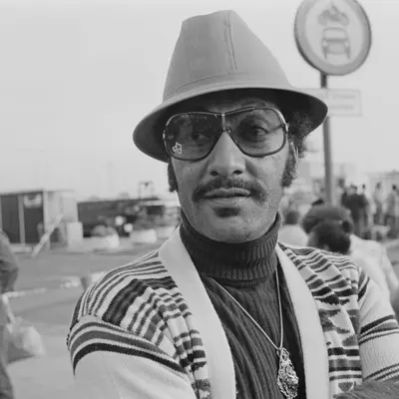What Is Fela Anikulapo Kuti’s Net Worth?
Fela Anikulapo Kuti, a monumental figure in Nigerian music and activism, had a net worth of $5 million at the time of his death in August 1997 [1]. This valuation notably includes the enduring value of his intellectual property, encompassing his likeness, name, trademarks, and extensive music catalog. Posthumously, these assets experienced substantial appreciation, contributing significantly to his legacy’s financial dimension [1].
Fela Kuti’s Early Life and Career Beginnings
Born in October 1938 in Abeokuta, Colony of Nigeria, Fela Kuti’s upbringing played a crucial role in shaping his future musical and activist endeavors [1]. While specific details regarding his early schooling and residences are scarce, it is known that he was sent to London to study medicine but instead pursued music at the Trinity College of Music. This pivotal decision laid the groundwork for his pioneering contributions to the Afrobeat genre [1].
Musical Achievements and Album Releases
Fela Kuti’s discography is rich and diverse, reflecting his innovative approach to music and his socio-political commentary. His albums, released between 1969 and 1990, include:
- 1969: Fela Fela Fela [1]
- 1971: Fela’s London Scene, Why Black Man Dey Suffer, Live!, Open & Close [1]
- 1972: Shakara, Roforofo Fight [1]
- 1973: Afrodisiac, Gentleman [1]
- 1975: Confusion, Expensive Shit, He Miss Road [1]
- 1976: Zombie [1]
- 1977: Stalemate, No Agreement, Sorrow Tears and Blood [1]
- 1978: Shuffering and Shmiling [1]
- 1981: Black President, Original Sufferhead, Unknown Soldier [1]
- 1985: Army Arrangement [1]
- 1989: Beasts of No Nation [1]
- 1990: Confusion Break Bones [1]
While concrete sales figures and streaming data for each album are not readily available, the impact of these works on the Afrobeat genre and their contribution to Fela Kuti’s net worth are undeniable. His live performances, characterized by energetic stage presence and socially charged lyrics, further amplified his influence and revenue streams [1].
Clashes with the Nigerian Government and Personal Life
Fela Kuti’s outspoken criticism of the Nigerian government led to numerous arrests and imprisonments [1]. These clashes, while disruptive, also solidified his image as a fearless advocate for human rights and social justice. Specific details regarding the financial repercussions of these legal battles are not fully documented. Fela Kuti’s personal life was unconventional, with reports indicating he had more than 20 wives/partners during his lifetime [1]. When he died in 1997, Fela did not leave a will or any formal indication for how he wanted his assets distributed. His estate recognized seven children, of which one was deceased [1]. More than one million people reportedly attended his funeral [1].
Posthumous Increase in Intellectual Property Value
The true extent of Fela Kuti’s net worth lies significantly in the posthumous appreciation of his intellectual property [1]. Following his death, his music gained renewed international recognition, leading to increased licensing revenues, royalties, and other related income streams. Unfortunately, specific figures for these revenues are not publicly accessible. However, the continued popularity of his music and his status as a cultural icon suggest substantial earnings for his estate.
Instruments Played
Fela Kuti was a multi-instrumentalist, showcasing his talent on the saxophone, keyboards, trumpet, guitar, and drums [1]. This versatility contributed to the richness and complexity of his Afrobeat sound, enhancing his appeal to a wide audience.
 Net Worth Ranker
Net Worth Ranker































































